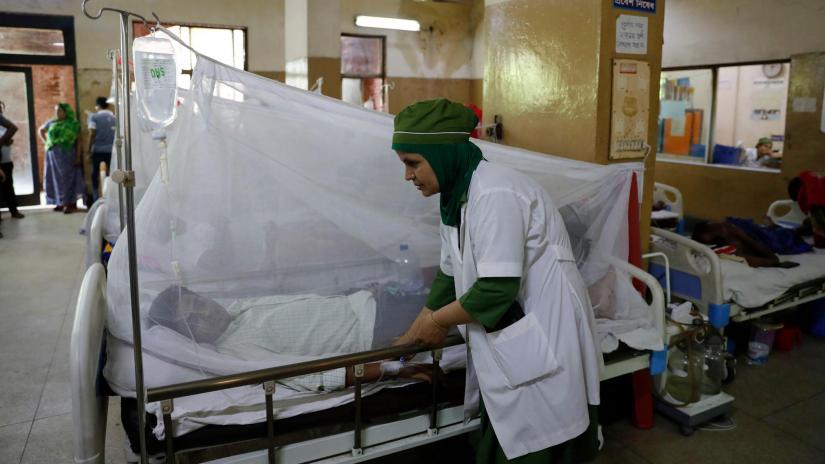
Dengue turned into one of the biggest crises of the country in 2019, which made headlines and created panic among people in Dhaka city and elsewhere in the country. The official death toll from dengue fever stood at 148 until Dec 29, whereas the unofficial death figure is reported to be over 200, so far.
More than 100,000 dengue patients had been admitted to hospitals across Bangladesh.
Dengue is spread through Aedes Aegypti mosquito. The mosquito is infected when it takes the blood of a person infected with the virus. Large scale dengue outbreak occurred in 2019, due to the apparent failure of the two Dhaka city corporations who are primarily responsible for controlling mosquito.
As an end result, Dhaka South City Corporation (DSCC) Mayor Sayeed Khokon lost his party's nomination from Awami League for contesting in the upcoming mayoral race slated for Jan 30.
Party insiders said the party has not picked Khokon as because he drew widespread criticism from different quarters for failing to tackle the dengue outbreak this year.
The number of dengue patients being identified across Bangladesh this year is more than double the total diagnosed patients with the mosquito-borne illness - recorded over the past the past 19 years.
Some 50,176 dengue patients were identified around the country between 2000 and 2018, according to the Directorate General of Health Services (DGHS).
Breaking all previous records since 2000, this year when dengue outbreak was documented for the first time, a total of 101,334 people were hospitalized throughout the country until Dec 29 this years, according to the DGHS.
A total of 296 people died from dengue between 2000 and 2018 across the country.
Ayesha Akther, assistant director of the DGHS control room, said there was a lack of preparedness as the crisis worsened in June this year well ahead of its usual occurrence in September.
Panic gripped the people as incidents of dengue cases were spreading quickly across the country. Hundreds of patients were admitted into hospitals. Even panic stricken parents and guardians had stopped their children from attending schools.
On the back of huge public outcry, the city corporations launched awareness campaigns during the Eid-ul-Azha holidays, around the month of August, although dengue had started spreading much earlier since June.
Moreover, the pesticides being used by the city corporation, had not been able to control Aedes mosquito.
"City corporations were using the pesticides which they have been using every year. But when a medicine is used on a regular basis that becomes pest resistant,” said Prof SM Mizanur Rahman, chairman of the department of Entomology at the Sher-e-Bangla Agriculture University in Dhaka.
Despite the fact that a control room was opened by the South City Corporation, it was not performing properly due to shortage of personnel. Most of the government hospitals and private clinics had been overstretched with the dengue patients.
Dengue season begins in June, spreads more in September and starts to fade out in October, say DGHS officials. Measures taken in tackling the dengue have given some relief to the people. However, still there are at least 74 patients admitted at different hospitals across the country and every day on an average 3 new dengue cases are admitted.
The High Court on Nov 12 constituted a two-member judicial inquiry committee headed by the Dhaka district judge to identify the reasons for the failure of the two Dhaka city corporations to prevent dengue outbreak this year. The court asked the committee to submit its report to the court by Jan 15.


